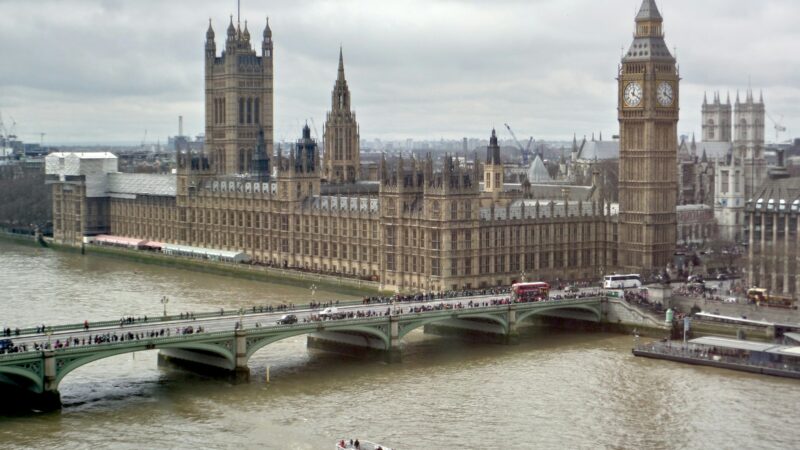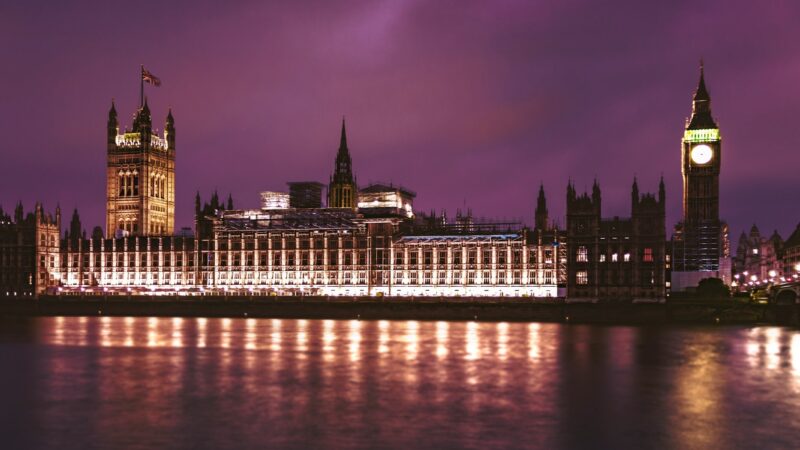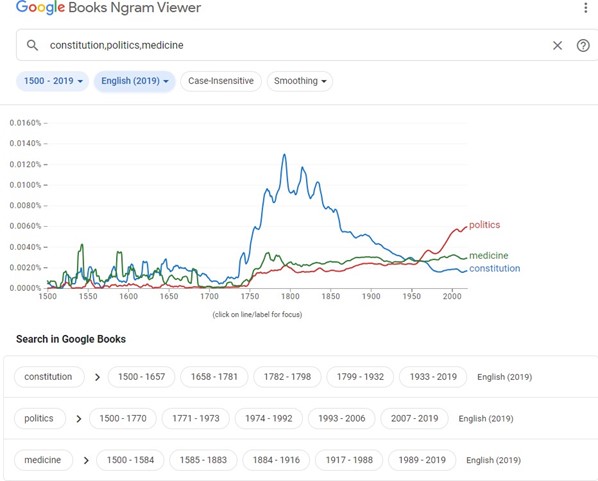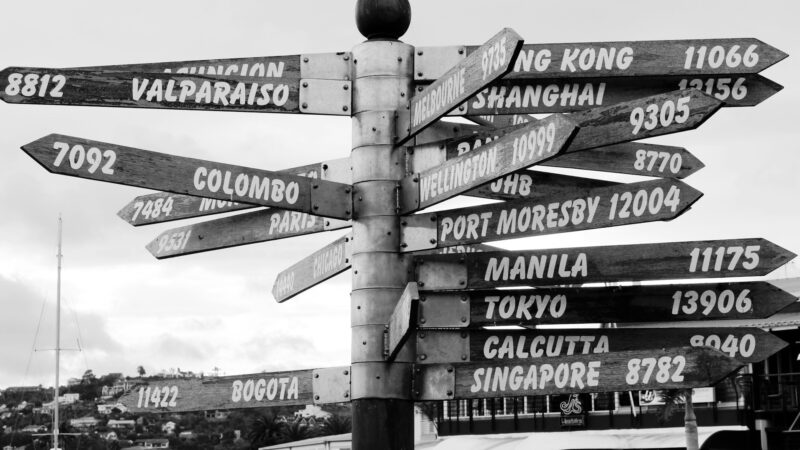Victims, Aren’t We All?
Following Donald Trump’s recent announcement concerning returning to Butler, Pennsylvania just over a month after an assassination attempt was made on his life there, there are many things to reflect on.
One of them is one of the few bright spots from the fallout of that event: that being much of the left finally getting a taste of their own medicine for once when it came to cancel culture. Many of those who attempted to downplay and mock the horror, alongside those who expressed disappointment that the would-be killer didn’t hit his target, felt the full wrath of the Frankenstein’s monster they had developed for decades. The parody band Tenacious D and streamer Destiny were the biggest casualties of this, all the while many others were targeted also, from school administrators and Home Depot employees, with the popular X account LibsofTikTok being the witchfinder general on that end.
Despite such an atmosphere and such scalps, many objected to such behaviour, out of some well-intentioned (if ultimately misguided) commitment to principle against cancel culture as a whole. As expected, many centrist commentators (like Triggernomtrey’s Konstantin Kisin and satirist Andrew Doyle) echoed this point, but more surprising were prominent right-wing accounts, often seen as ‘dissidents’ of the movement, the sort of type expected to appear on Alex Kaschuta’s Subversive podcast.
In particular, anon X accounts, like Peachy Keegan and Posts by Feds came to the defence of those being cancelled, especially when it came to the aforementioned Home Depot employee, who they felt didn’t deserve such vitriol.
All of these are undoubtedly pleasant and well-meaning sentiments, and not without some legitimacy. Indeed, the right shouldn’t perhaps get too carried away with such attitudes when the wind blows in our direction – as Nietzsche once noted, ‘Beware that, when fighting monsters, you yourself do not become a monster… for when you gaze long into the abyss. The abyss gazes also into you.’
Despite this, I can’t help but feel that such attitude overall is not the best for this moment or any like it when we can finally use these tools against the left.
Firstly, it is true that every society has boundaries on what is acceptable and what isn’t. As far as not wanting a political opponent dead goes – especially just after an assassination attempt – that is perhaps a pretty good standard for what isn’t acceptable in a free society to advocate for, all the while being a pretty low bar to meet in a democratic society.
Add to that how politically volatile much of the United States is in right now, any attempt to raise the temperature in such a way to make the tinderbox more likely to explode is beyond reckless and reprehensible. Wanting to stem and cull those who attempt to do so, whether they be well-known celebs or simple custodians, is something perfectly legitimate and sensible to want to do.
This is especially true in Trump’s case. This is a man who has already had much vilification against him to the point whereby his possible death seemed to be something much of the mainstream was happy to egg on, including the several calls for his murder by celebrities, and the Beeb going as far as to air a documentary sympathetic to a previous attempted Trump assassin in Michael Sandford (therefore, the swift backlash to maintaining that atmosphere is an improvement from years past). Given that, alongside the increased political violence against the right across the West (including the attempt against former Slovakian PM Robert Fico), any attempt to further normalise such attitudes is definitely not good for any body politic, let alone the divisive one we have now.
Secondly, the left has cancelled several people on the right for far less over the years, and no-one was safe from that. One many lament Tenacious D being dropped from their talent agency but joking about the assassin missing Trump is objectively far worse than what Winston Marshall did to be chased out his own band Mumford and Sons or what Morrissey did to be effectively shunned by much of the music world that once adored him. Their crimes? The former praised Andy Ngo’s book Unmasked: Inside Antifa’s Radical Plan to Destroy Democracy while the latter supported unpopular political parties and criticised much of the UK political class.
Many fans of Destiny may be irritated that he can no longer be monetised on several platforms, but that is nothing compared to YouTuber Felix Kjellberg (better known by his ‘PewDiePie’ alias) being fired from his Maker Studios agency after a smear campaign by the Wall Street Journal to portray him (falsely) as antisemitic over edgy jokes, let alone the lawfare against YouTubers Mark ‘Count Dankula’ Meechan and 6oodFella over similar social media edgy jokes.
One may feel sorry for the Home Depot cashier, but many other custodians were thrown under the bus to little attention. Take Brian Leach, a disabled Asda worker who was fired for sharing a Billy Connelly joke seen as ‘anti-Islamic’ by colleagues. Or Beverly Lockwood, a woman fired from Arc Engineers for being a member of dissident political organisations. Or Gillian Phillips, a children’s author fired from HarperCollins for supporting J. K. Rowling and had to retrain as an HGV driver to make ends meet. Or William Kelly, a Virginian police officer, who was fired for financially supporting Kyle Rittenhouse in his 2021 trial. And the worst part is that this is by no means exhaustive, with these links providing more comprehensive lists to that regard.
That leads me to my final point. We are in a culture war. One side is taking it very seriously, using their power and influence to silence those it doesn’t like for banal reasons – the recent culling of the anti-mass immigration website VDare by lawfare is a good example of this. If the other side isn’t willing to fight back in a similar matter because of some so-called principle, it will not win and doesn’t deserve to.
I for one would love nothing more than a return to the idea of having an equilibrium with the left about not cancelling anyone. For that to work however, there must be one in the first place – something impossible when one side is hopelessly unbalanced. Until the right can wield some scalps and cancel its opponents on its own reasonable terms – such as not wanting the death of a much-maligned political enemy – then there is nothing to be gained from being high and mighty while accomplishing precisely diddly squat, an albatross the right has borne around our necks for far too long. The equilibrium can only emerge once we win, and the left has to agree to our terms of peace.
So do not weep for those on the left who are cancelled. At best pity them, but no more. In fact, I would suggest this: when they happily laugh and wallow in glee as VDare is shut down or they grin as the recent wave of rioters in Britain are jailed for holding sticks or naughty social media posts, revel in similar behaviour when the shoe is on the other foot, whether it be against the unemployed Home Depot colleague or in support of the hefty sentences for the midwit extremists of Just Stop Oil they are so in dismay of.
Until there is victory, there can be no honour. While we wait, we might as well take advantage for when the roles are reversed as best we can, to hopefully end this once and for all. Or to quote the villainous Derrick Lynch from Namco’s Crisis Zone arcade game: ‘So you will understand and fear, your own foolish mistakes’.











The Riots: a working-class view
Back in the fourteenth century, England’s lowest class enjoyed the greatest piece of luck it has ever had: the arrival of the Black Death. True, most of us were wiped out, but life became so much better for those who survived. Anyone who wanted our labour now had to compete for it and offer more than their competitors did. These inducements (today we call them wages) went up and up because workers had become so scarce. Such was the plight of the working class in those days that it took a lethal disease that wiped out half of humanity to improve our lot; something which should teach us the importance of the size of the labour pool: how the amount of available labour can be balanced to give both sides a fair deal, or skewed one way or the other to cause economic and social disruption.
Since 1997, the year of the coming to power of New Labour, it has been the policy of every government to saturate the British economy with workers from foreign sources, thus greatly expanding the amount of available labour. This means every lower-skilled, less educated, less qualified worker’s bargaining position and job security were jeopardised. It should be obvious that in a free market – in fact in any endeavour where there is competition – there will be rivalry between the contenders. There will be resentment toward challengers who threaten one’s standard of living, or even one’s very capacity to earn a living. Recently this resentment boiled over and numerous riots occurred around the country. They happened because of what has taken place in Britain over decades: the reckless pursuit of profit by means of reducing labour costs at the expense of (and with no concern for) social cohesion. A ruthless, imported form of capitalism has taken over and sacrificed a section of what is supposed to be one nation in order to benefit another part of that nation. The Left of yesteryear called this class conflict, a term which our modern and very bourgeois Left do not care to use these days; they prefer cultural conflict to class conflict, possibly because so many modern Leftists are themselves millionaires and discussions about wealth inequalities would embarrass them. Populists describe the division of the classes as the elite versus the people, and the American Right has enjoyed success with this message, but whichever terminology one prefers, it is clear that here in Britain what was once arguably one nation has now unarguably been cleaved in two.
Although Labour has traditionally been the party of mass immigration, for the last fourteen years immigration ballooned while a Conservative party was in power. The drama of small boats ferrying illegal migrants across the channel was really just a footnote to (and perhaps a distraction from) a large amount of quite legal immigration rubber-stamped by the Tories. The simple truth about immigration is this: enormous numbers of foreign workers come and settle in this country because British politicians want them to. Mass immigration means there is no pressing need to innovate, no need to invest, no need to waste money training or educating British people, no need to worry about productivity: one can merely import cheap ready-mades, and then carry on importing them. It is the easy option and our politicians have been taking it for years. Any economic growth Britain has achieved has been a sham; merely a growth in population. The group which has suffered most is of course the working class, those who are most vulnerable to low-skilled immigration; a working class that these days has little to no political representation.
Jacob Rees-Mogg recently condemned the working-class rioters, saying that such behaviour might be justified in a dictatorship but not in a democracy like Britain, where peaceful protest is permitted. The problem is of course that protesting achieves nothing. In fact, in modern Britain, voting achieves basically nothing. In 2016, during the referendum on our membership of the European Union, the Leave campaign was only put on the path to victory when the focus was changed from important but philosophical arguments about sovereignty to the issue of immigration. After the vote was won, however, a strange thing happened. ‘I never claimed immigration would come down,’ said Daniel Hannan immediately after the electorate had voted to get immigration down. David Davis said that immigrants would be ‘needed for many years’ and Michael Gove praised how immigrants raised educational standards. If one examines the promises made by Brexiteers one sees that they were never promises. They were not even clear statements, merely hints that could be interpreted in different ways. None of the Brexiteers promised to stop immigration. None of them even promised to reduce it. They promised merely to control it. The word ‘control’ is loved by politicians because it means everything and nothing at the same time. Voters took it to mean that immigration would be reduced, but it could just as easily have meant that it would be left as it was. Perhaps, it could mean that it would be increased – which, incredibly, is what happened, despite a majority in the highest turnout for a UK-wide referendum in British electoral history.
With free movement from the EU interrupted, workers were now imported from the rest of the world. Migrants from very distant and very different cultures would come here in increasing numbers; and because these people were from such distant parts of the world they belonged to different races. This meant that unlike the Poles, the Hungarians, the Lithuanians etc., these foreign migrants would be instantly recognisable as such, from a distance, without them having to utter a single foreign-accented word. And so it is that riots which are economic in cause, which are the consequence of choices made by governments, can appear to be purely racist uprisings – and safely dismissed as such by sanctimonious politicians and their media. By these means a truth has been officially established: that the riots were a temporary madness caused by wicked fascists exploiting the gullibility of working-class people.
The truth however is that in this democracy which Jacob Rees-Mogg believes we live in; the working class are not allowed to vote in their economic interest. Their voice and their interests are repressed. In any general election in the UK there are only ever two parties that have a chance of being elected: the Labour Party, which enthusiastically believes in immigration, and the Conservative Party which believes in it with equal enthusiasm but pretends not to. There has been a convergence of self-interest. First, the greed of a Conservative Party that cares only about its enrichment and which despite its reputed belief in “faith, flag and family” is happy to see the British natural environment, British culture, British traditions, British family life, British history, British ownership, British democracy, British self-respect and the British working class all ruined, each of them being sacrificed in the scramble for quick profit at any cost. And then there is the greed of the Labour Party. This party is, in material terms, as rich and privileged as the Conservatives but is greedy too for moral glory. It wants to be loved by people who matter (educated, cultured people of taste) and so it haughtily condemns the primitive rage of the uneducated people with ugly lives and values who live below. By the magic of media, the material self-interest of the privileged becomes a noble cause. The expansion of the labour pool and the crippling of the bargaining position of British workers is shown as a moral crusade; the pursuit of diversity, the bringing about of a glossy-eyed, handholding, multi-coloured, multi-lingual paradise in which the elite are ‘enriched’ by other cultures while the ferocious competition for jobs pauperises the working class.
Democracy is more than just a word. It is the most efficient way of organising a society ever devised. It balances competing interests by making them visible and enabling them to negotiate. It vents the pressures that create conflict. What the people would have wanted, and would have accepted had anybody in our alleged democracy bothered to ask them, was a moderate level of immigration that would have benefited a moderated capitalism; a capitalist system in which those enjoying extreme levels of wealth and those suffering extreme levels of hardship were both pulled back toward a civilised mean; a more cohesive, moderately patriotic Britain in which all get a just share of everything; in which those who do more and achieve more rightly get more, but not an immoral amount more. In other words, a Britain that was one nation – not the theatre of tribal warfare it is today.
Photo Credit.